Our abrupt transition to remote work in March was jarring, but we worked hard to keep everything running as smoothly as possible. Six months later, we are well-settled into a routine of remote work and have learned a few lessons along the way.
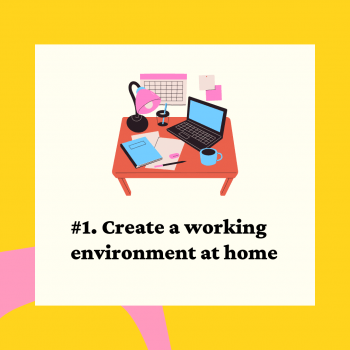 Lesson 1: Create a working environment at home
Lesson 1: Create a working environment at home
Our team has found it incredibly important to develop a daily routine for working from home, while recognizing that the new routine may be different from what it was. Some practices that have enhanced our remote work include:
- A morning ritual to start the day, like coffee, yoga, or going for a jog.
- Using the outdoors for a reset or change of pace: working on the porch or balcony, going for a midday walk, or having a walking meeting via phone.
- Maintaining a schedule, with a definite start and end to the workday.
- A separate space dedicated to working, and including things that bring you joy.
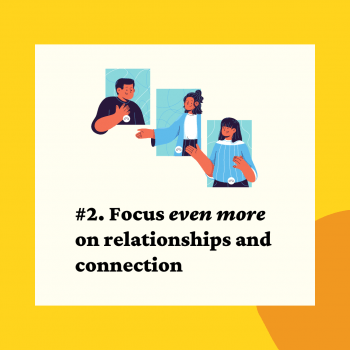 Lesson 2: Focus even more on relationships, connection, and collaboration
Lesson 2: Focus even more on relationships, connection, and collaboration
Connection and relationships matter even more. We found that certain apps help us stay connected to one another. We use Microsoft Teams internally to streamline our workflow without endless e-mail chains. Teams is also great for an all-Center chat sharing funny life stories, interesting news, and pictures of pets.
We used to have informal conversations in our offices or as we waited for a meeting to start. In this world of virtual meetings, we want to build in time and implement new strategies to continue to foster our relationships and collaborate in meaningful ways. A few of our new relationship-building strategies include:
- Opening up meeting rooms a few minutes early to allow for informal discussion (i.e., What did you watch on Netflix this weekend?).
- Integrating icebreakers and interactive activities into virtual meetings.
- Hosting virtual happy hours and monthly socially distanced events for the team, like hikes in St. Louis area parks.
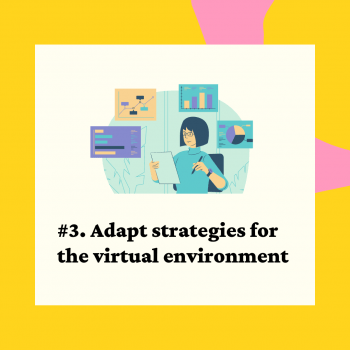 Lesson 3: Adapt strategies for the virtual environment
Lesson 3: Adapt strategies for the virtual environment
We employ a participatory approach to evaluation and value stakeholder engagement throughout the evaluation process. We used to host half-day in-person logic model sessions or evaluation question development brainstorming meetings – but that strategy doesn’t work in our virtual world. We have adapted to ensure stakeholder engagement is still embedded in our work and leveraged technology to help us to do so.
We have also realized there’s a difference between in-person meetings and Zoom meetings. Let’s just say a lot of us are feeling “Zoom fatigue.” Below are a few strategies we have found helpful for preserving our energy:
- Allowing for periods of “camera off” time during meetings, like when a colleague is screen-sharing.
- Scheduling more touchpoints but shorter timeframes, such as brief meetings that occur more frequently.
- Blocking out times on our calendars for when we are not available for virtual meetings.
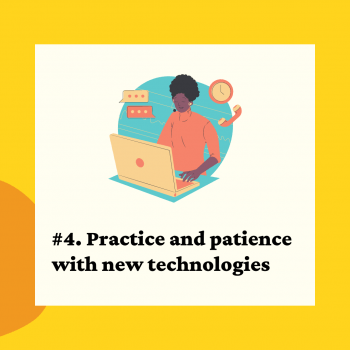 Lesson 4: Plan on lots of practice and patience with new technologies
Lesson 4: Plan on lots of practice and patience with new technologies
The transition to fully virtual work has required a learning curve. Although most of us felt fairly technological savvy, prior to Spring 2020 we had little experience using Zoom and Microsoft Teams. As with any skill, practice is essential and has to be built into your routine. We have found it helpful to:
- Focus on learning one skill at time to keep things manageable and practice it during a meeting with team members.
- Document and share what we learn. We do this via Team and also host periodic “Lunch and Learns” that provide informal opportunities for sharing tips and tricks.
- Prepare for the unexpected. What would you do if you lost your internet connection? The break-out rooms you set up didn’t work? You couldn’t share your screen? All of these (and more!) have happened to us. There’s always a Plan B, the trick is to know it ahead of time.
We know many of our partners also made a transition to working remotely while continuing to serve their clients. We would love to hear your lessons learned − add them to the comment box below. Together, we can build our capacity for this new virtual world.
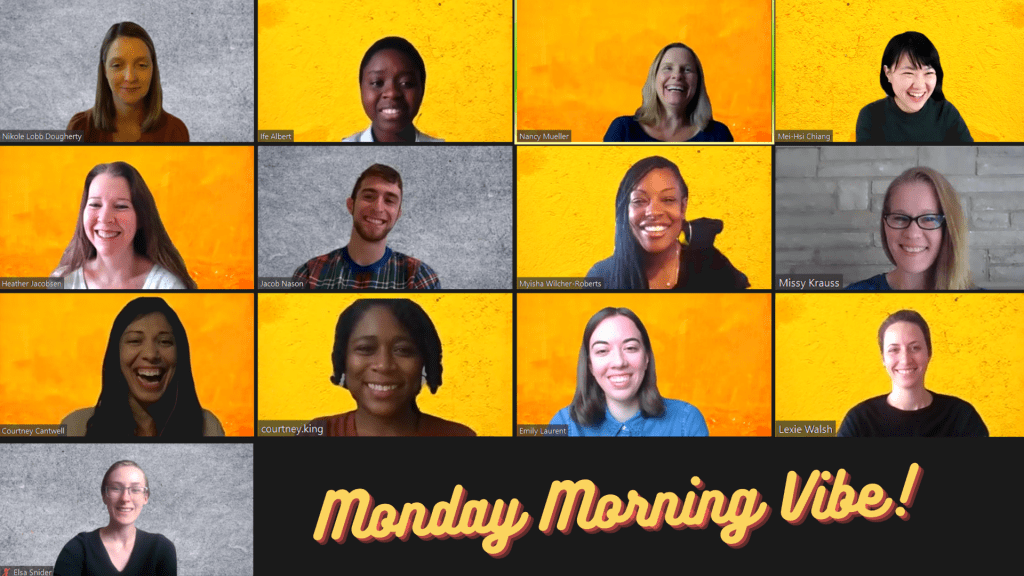
Thank you for summarizing these good advices for what we are doing now in new normal and providing such useful information.